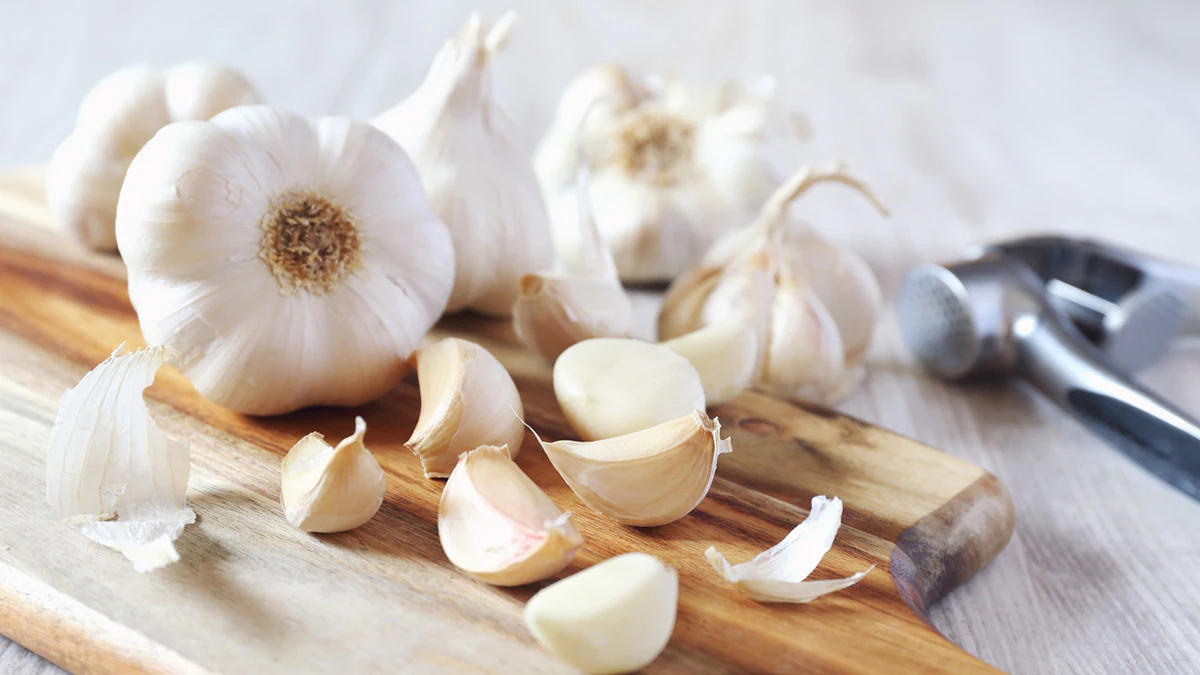
When we think of garlic, what usually comes to mind is its strong aroma in the kitchen. But who would’ve thought this kitchen staple could also be a surprising ally for dental health?
For centuries, natural remedies have relied on garlic for its antibacterial properties. And today, it might just find a place in your oral care routine—helping reduce tartar buildup and brighten your smile.
Myth or fact? Let’s take a look at how garlic can really work for your teeth and how to use it safely.
Garlic vs. Tartar: Natural Antibacterial Power
Tartar is a real threat to dental health. It forms when plaque hardens, which can lead to cavities and gum disease. Garlic contains a powerful compound called allicin, known for its antibacterial and antifungal effects. By slowing down the growth of bacteria in the mouth, garlic can help reduce tartar formation and keep your gums healthy.
But that’s not all—thanks to its cleansing properties, garlic may also help fade some surface stains on your teeth.

How to Use Garlic for Better Oral Hygiene
If you’re curious about trying this natural remedy, here are a few simple methods you can add to your routine:
Garlic Paste for Targeted Action
- Crush a fresh garlic clove until it forms a paste.
- Gently apply it to your teeth and gums.
- Let it sit for 1–2 minutes, then rinse thoroughly.
- For an extra boost, add a pinch of fine salt—it acts as a gentle abrasive.
Garlic Mouthwash
- Infuse chopped garlic in warm water for a few minutes.
- Strain and use the liquid as a mouthwash for 30 seconds to 1 minute.
- Rinse again with plain water.
A Few Precautions Before You Try It
Garlic can be a helpful natural ally, but it should be used with care:
- Sensitive gums? Garlic may cause irritation or a burning sensation. Start with a small amount to test your reaction.
- Lingering odor: Garlic’s strong smell can stick around. Chew on fresh parsley or rinse with a little water and apple cider vinegar to neutralize it.
- Not a substitute for professional cleanings: While garlic may help prevent tartar, it won’t remove hardened buildup. Only a dentist can do that effectively.

Why Don’t Some Dentists Recommend It?
Garlic isn’t a standard ingredient in oral care. Even though its antiseptic properties are well-documented, applying it directly to teeth and gums can be too harsh for some people. Plus, it’s not a replacement for regular brushing with fluoride toothpaste or professional dental checkups.
A Natural Boost, Not a Miracle Cure
Garlic can be a great natural addition to your routine, helping limit bacteria and tartar buildup. Still, it should only complement—not replace—a solid dental hygiene routine. That means thorough brushing, flossing, and regular visits to the dentist.
So, are you ready to give this age-old remedy a try?




